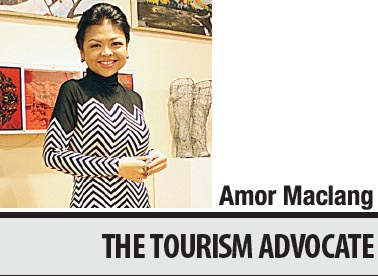T-HOUSE Movement: Modernizing the ‘bahay kubo’ in the new normal

PRETTY soon when Filipinos all over the world sing the folk song “Bahay Kubo,” something new in this modern times will instantly cross their mind: T-HOUSE!
Posts by author

PRETTY soon when Filipinos all over the world sing the folk song “Bahay Kubo,” something new in this modern times will instantly cross their mind: T-HOUSE!

THE real-estate industry has been enjoying the wave of a massive boom, and with that, a greater demand for livability in an urban setting.

“There is no house like the house of belonging.”–David Whyte.

IN this so-called new normal that we are currently in, we’ve had to adjust to so many new ways of living—such as wearing masks and physically distancing ourselves from people in public.

WHETHER at home or in our respective workplaces, we spend much of our lives breathing indoor air that is often contaminated by numerous pollutants.

REAL estate is not spared from the difficulties that the Covid-19 pandemic has brought upon us. The industry has been hit heavily, with predictions that it might take years to recover in the US. Will it be the same for us here in the Philippines?

WE are entering a time of a lot of uncertainty. For businesses of various verticals, recovery plans and pivots must be made on assumptions. For government, realignment and crisis funds are activated with the prescription of experts and medical leaders. For individuals, a back to basics approach must be implemented.
WHO is Angelo Comsti? “The late, great Doreen Fernandez urged me to celebrate food and my proud Malolos, my city of birth. But when you’re 16, the wisdom of the food gods is wasted on the young since the only thing I wanted to do at that time was date. I missed out on empanada de kaliskis and the proud ensaymada culture of Malolos.”

It’s that time of the year—February. While it’s historically been associated with love, this year, 2020 gave us the trifecta of “special situations” from the explosion of Taal Volcano to the novel coronavirus and, also, a slew of earthquakes and the “usual political turmoil.”

THE “accidental” founding of this group happened when I first organized for our friend Bhavna Suresh, the first Power Women in Real Estate (WIRE) issue celebrating the quiet contributions of the fairer sex in a male-dominated industry.

IT opened its doors to the public on the very first day of Philippine Startup Week on November 18, 2019. The date was providential as the facility is essentially inspired by and made for the start-up community.

That is why most people put real estate in their mid to long-term investment strategy, with the exception of high net-worth individuals, who can flip properties in a short time when opportunities present themselves.

ROADS are arteries through which the lifeblood of a country’s economic development runs. I cannot overemphasize this fact. Roads link workers to factories, employees to companies, farms to markets, students to schools, families to communities, and the sick to hospitals.

MOBILITY is one of the most important factors that make cities livable. With effective long-term strategic planning, city administrators can organize day-to-day mobility needs of their citizens, logistics of businesses, and traffic flows in a way that values accessibility.

EVERYONE who’s anyone in the real-estate industry knows that for someone to make it in the property business, one should know the ins and outs of the industry and have the requisite smarts to deftly navigate them.

For many Filipinos, any mention of Palawan evokes a longing for an adventure to paradise. The promise of azure and emerald waters gently skirting beautiful limestone formations, pristine white-sand beaches, and the freedom to follow one’s feet, have beckoned travelers to the province’s shores for decades.

One of the perks of being chosen as a mentor for creative, young and driven entrepreneurs in the fifth season of The Final Pitch is the opportunity to work with my brilliant friends in the real-estate industry.

THE Philippine real estate has always been a continuously evolving landscape as it adjusts to the ever-changing needs of the local property market. Alongside arising trends and practices in the real-estate industry, there is the frequent emergence of new industry challenges and opportunities that require modern, up-to-date approaches.

WITH the fast and constant evolution of people’s needs, it is to no one’s surprise that industries are finding ways to innovate their products and services to keep pace with customers’ evolving needs.

As the head of public engagement of the Urban Land Institute (ULI), I have always been on the lookout for ways that we can effectively engage key stakeholders and come up with innovative and creative programs to elevate the real-estate sector in the country.

TOURISM has always been central to national development. It contributes heavily to three high-priority goals of developing countries—the generation of income, employment and foreign exchange earnings. A country can only truly prosper if it has a healthy, growing tourism industry.
Input your search keywords and press Enter.